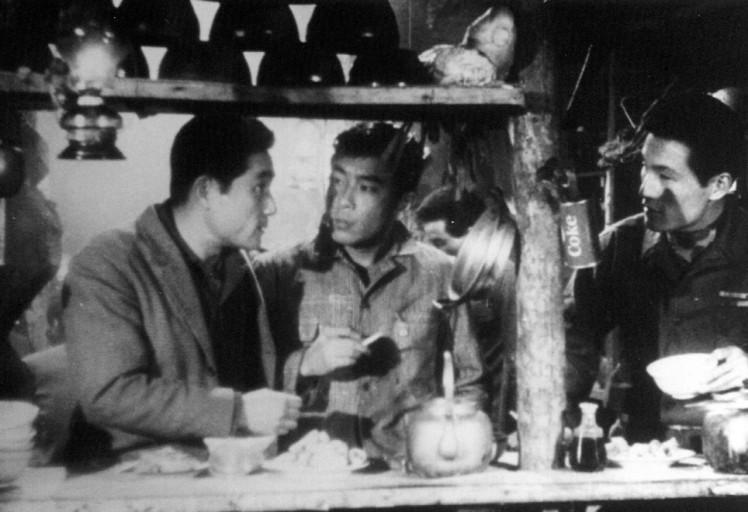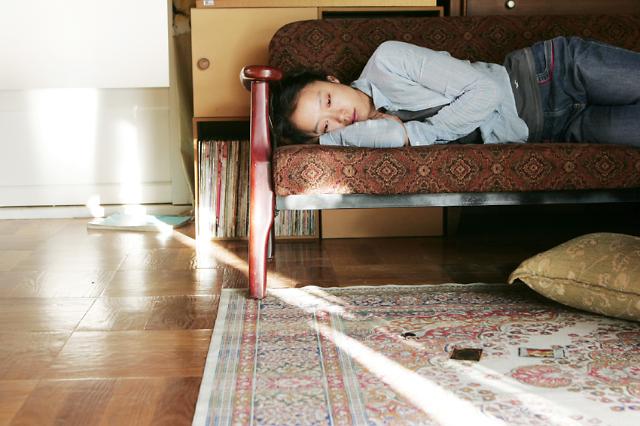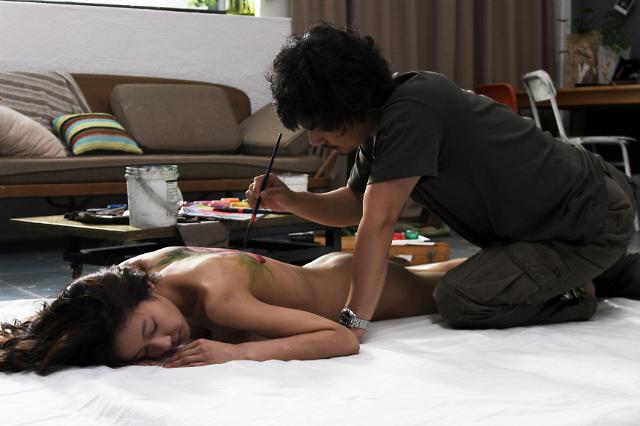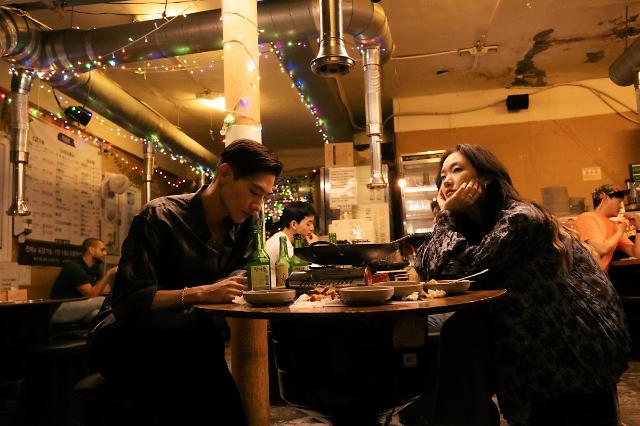130, Suyeonggangbyeon-daero,
Haeundae-gu, Busan, Republic of Korea,
48058
Ko-pick: Korean Films Based on Literature
- Writer by KoBiz
- View334
Much of the news cycle in Korea over the past two weeks has been dominated by Han Kang winning the Nobel Prize in Literature. She became the first South Korean writer and first female Asian writer to win the award making it historic. She is renowned for award-winning novels including The Vegetarian (2007), Human Acts (2014) and The White Book (2018).
Two film adaptations of her books, Lim Woo-seong’s Vegetarian (2009), and Scars (2011) – based on the novella Baby Buddha – were re-released in selected CGV cinemas in October marking Kang’s remarkable achievement in writing. Queues of people seeking to get hold of her work were also seen at bookstores and libraries around the country.
The immense interest in the writer’s work is reminiscent of the public frenzy that followed Bong Joon Ho’s historic win at the Academy Awards in 2020 where his film Parasite went on to win Best Picture. Indeed, with Squid Game also attracting headlines in 2021, Han Kang’s latest accomplishment further underscores the strength of Korea’s enviable cultural sector.
This week to mark Han’s win we will delve into Korean films based on literature. We will begin tracking adaptations with an earlier example An Aimless Bullet (1961) before looking at The Road to Sampo (1975), Our Twisted Hero (1992), Secret Sunshine (2007), Vegetarian (2009), Troll Factory (2024), and Love in the Big City (2024).

Also known as Obaltan, Yu Hyun-mok’s undisputed classic An Aimless Bullet is based on the short story of the same name by Yi Beomseon published in 1959. Filmed in the period between the overthrow of Syngman Rhee’s government and the military coup staged by Park Chung-hee in the early 1960s, Yu was able to take advantage of a brief respite in censorship. However, it was ultimately banned from cinemas by the government for its dour portrayal of post-war Korea.
One of the biggest stars of the era, Kim Jin-kyu plays Cheolho who is struggling to make ends meet working as an accountant and looking after his entire family: his mother, wife, children, while also supporting his younger sister and veteran brother. After a war that has destroyed the peninsula, it has left people having to fend for themselves and we see how they are put in desperate situations. The brother robs a bank, the sister is a prostitute for American soldiers – and the main protagonist can’t even afford to get his tooth treated despite excruciating pain.
It paints a dark portrait of life in the 1950s mixing elements of realism and melodrama making it one of the most acclaimed films of the era. It screened at the San Francisco International Film Festival in 1963.
Lee Man-hee’s final film before he died – he collapsed while the film was being edited in 1975 – was based on the 1973 novella of the same name by Hwang Sok-yong. It follows a young laborer played by Baek il-seob who meets a middle-aged man on his way to Sampo, his hometown. They come across a waitress who has run away from the restaurant she was working at and end up travelling together.
Moon Suk as the charismatic waitress with an infectious personality is delightful as the three reminisce together as they embark on a journey across Korea’s snow-filled landscape.
In the 1970s, especially, there was a trend to adapt novels and short stories with other titles including Lee Jang-ho’s Heavenly Homecoming to Stars (1974), Ha Gil-jong’s The March of Fools (1975), Kim Ho-sun’s Winter Woman (1977) and Kim Soo-yong’s Night Journey (1977).

While film
adaptations of texts were not as prominent in the 1990s there were some notable
examples including Im Kwon-taek’s Seopyeonje (1993) and Our Twisted
Hero (1992) that came a year earlier. The film is based on the short novel
of the same name by Yi Munyol who is one of Korea’s most respected writers.
With the
book drawing parallels to Korea’s autocratic past and its transition into a
democracy, the film also tells the story of a lecturer at a college entrance
exam preparation academy recalling his time as a primary school student (Go
Jeong-il) when he was transferred to a school in rural Korea. There he meets
the school bully and succumbs to his tactics before a young teacher talks to
them about equality, justice democratic values. The film also stars Choi
Min-sik in one of his earlier roles playing the new class teacher.
Released at a time when Korea was entering a new democratic era that also ushered in a new exciting phase for the Korean film industry, it’s a film that feels reflective of the transition that has proved to be so important for Korea’s cultural industry.

Lee Chang-dong is synonymous with narratives that challenge his audience. His 2007 film Secret Sunshine, which is based on the short story The Abject by Yi Cheong-jun who wrote more than 100 novellas during his career, is no exception. It follows a woman (Jeon Do-yeon) who moves to the town of Miryang (the Korean title of the film) with her young son after the death of her husband. There she befriends a mechanic played by Song Kang-ho but after something unexpected happens she is forced to confront immense pain and grief.
Uncompromising in his approach, Lee’s film is a harrowing and unforgettable portrayal of pain and loss, which is also largely attributable to Jeon Do-yeon’s intense and raw performance. Her character resorts to what she can to help ease her suffering but this proves futile, and comes to face the reality of her deep sorrow.
Jeon made history winning Best Actress at the Cannes Film Festival for her performance in 2007 that also gave it a boost at the local box office accumulating 1.7 million admissions.

Lim
Woo-seong’s Vegetarian is based on Han Kang’s three-part novel The
Vegetarian. Akin to the book, the protagonist is a young woman Yeong-hye
(Chae Min-seo), an artist, who gives up eating meat following a nightmare that
appears linked to her troubled past. With her husband not supporting her at
all, he files for divorce leaving her sister (Kim Yeo-jin) to try and care for
her. The sister’s husband, a video artist (Kim Hyun-sung) offers to go and see
her and asks if she can model for him by painting her in flowers, which appears
to help her psychologically.
Dealing
with trauma, violence, sex and art, like the novel, it’s a film that delves
into complexities of psychological struggles. While bleak for the most part the
film’s exploration of body art gives the film an interesting tone despite its
challenging themes.
The film premiered at the Busan International Film Festival in 2009 where it screened in Korean Cinema Today before securing invitations at other festivals that included the Sundance Film Festival where it screened in the World Cinema Dramatic Competition.
Based on the 2015 novel of the same name (Daetgeulbudae) by the former Dong-a Ilbo reporter Chang Kang-myoung, it follows a newspaper journalist (Son Suk-ku) who is suspended when a report he wrote on a conglomerate is attacked online and is reported as fake and sensationalist.
A young man
then approaches him with claims that his story was discredited through a team
of online trolls. He then discloses he and his friends are responsible for a
series of online activities that are unethical – promoting failed movies,
turning a young woman into a celebrity.
Directed
and written by Ahn Gooc-jin who made the KAFA project Alice in Earnestland, it’s
a gripping film with strong pacing and feels relevant to today’s climate where
trolling remains an issue many continue to face online. Indeed, films
themselves can be subjected to trolling after release.
The film also features rising stars Kim Sung-Cheol, Kim Dong-hwi and Hong Kyung as the team of trolls. It went on release in March 2024 and sold 972,000 tickets.

Directed by
E-Oni, Love in the Big City is a significant Korean film given how it
focuses on a gay protagonist that is rare in Korean cinema. The feature is
based on the bestselling novel of the same name and centers mainly on the first
part of the book’s four main sections. In this part of the book, it tells the
story of the friendship between Jaehee who is played by Kim Go-eun in the film
and her gay roommate acted by Steve Sang-hyun Noh.
As the
narrative unfolds, we see their friendship (as opposed to a romantic
relationship) develop that makes it standout compared to many romantic
comedies. It does deal with some of the
challenges of living as a gay man in Seoul but it’s also very uplifting in what
is an immensely rewarding and enjoyable viewing experience.
The film had its first public screening at the Toronto International Film Festival as a Special Presentation in September and has accrued more 640,000 admissions since its release on October 1. The book (including the remaining parts) has also been adapted into an 8-part limited series that dropped on Tving on October 21. The second episode was directed by filmmaker Hur Jin-ho (Christmas in August, One Fine Spring Day, A Normal Family).
Written by Jason Bechervaise
Editted by Shim Eunha



















